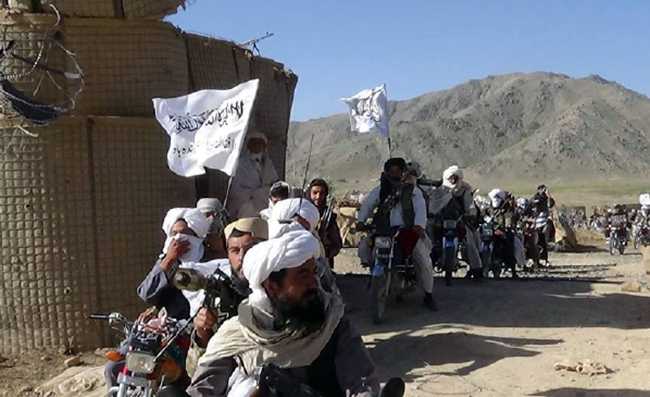The Taliban, which held power over roughly three quarters of Afghanistan from 1996 to 2001, still wage war against Afghan government and target both soldiers and civilians. Following the downfall of the Taliban’s regime, democracy and human rights were debated hotly and Afghan nation dreamed to live a peaceful life under the aegis of a democratic state. Afghan men and women celebrated democracy through flocking to ballot boxes. However, the Taliban remerged and sliced the fingers which were inked during the voting.
The current Afghan constitution was approved by the consensus in January 2004 after the 2003 Loya Jirga (Grand National Assembly). The first presidential elections after the new constitution was in effect, took place in October 2004, and Karzai was elected to a five-year term. The first elections for the National Assembly were delayed until September 2005.
Constitutionally, citizens are guaranteed the right to life and liberty, to privacy, of peaceful assembly, from torture and of expression and speech. If accused of a crime, citizens hold the right to be informed of the charges, to representation by an advocate, and to presumption of innocence. There is no discrimination on the ground of race, color, or sect in Afghanistan as article 22 states, “Any kind of discrimination and distinction between citizens of Afghanistan shall be forbidden. The citizens of Afghanistan, man and woman, have equal rights and duties before the law.”
Furthermore, the current constitution officially recognizes the Universal Declaration of Human Rights (UDHR) and the United Nations Charter, both are mentioned in its preamble and in article 7. Hence, the rights to life, liberty, and freedoms as well as human dignity are known as inherent and inalienable rights. Upholding human rights and dignity triggered a sense of public hope for democracy in Afghanistan and people hoped that the country would no more be beset by terrorism or militancy. Afghans were of the view that they would be able to exercise their rights under the aegis of democracy. In the hope that their ballots would prevent them from bullets, they cast their votes with big smile.
To their unmitigated chagrin, the Taliban resurfaced and destabilized the country. They again ushered in spilling the blood of Afghan men, women, and children, and destroyed infrastructures through terrorist attacks and suicide bombings. Despite the death of their leader Mullah Mohammad Omar and his successor Mullah Akhtar Mansour, the Taliban still operate systematically in Afghanistan and continue their destructive role.
The Taliban emerged in Afghanistan claiming to establish Islamic Emirate and practice upon Islamic Sharia. The bulk of the Taliban fighters came from religious backgrounds – i.e., seminaries from Afghanistan and across the border. They wore black turbans and long beards to represent religious face and ordered people to do the same. Those who shaved their beards were flagellated harshly by the Taliban patrols. Furthermore, the Taliban patrolled cities during prayer times and forced people to go to mosques for offering prayer. They also closed beauty parlors and would punish tailors who measured women’s body for making clothes. Women were not allowed to go out without a male chaperone. These were all done to showcase the Taliban as a religious group.
On the other hand, the Taliban massacred people in cold blood and hardly valued one’s life, which is highly valuable and sacred in Islam. They dishonored people and treated them violently. That is to say, the Taliban’s interpretation of Islam was radical but, most often, they did not practice upon what they preached.
To view the militants’ practices in the post-Taliban Afghanistan, the militant fighters continue violating people’s rights and dignity. The Taliban fighters still do not value one’s life or liberty. They carry out indiscriminate attacks in which countless number of women and children are killed.
With the Taliban’s escalated insurgency, the air is filled with great sense of disappointment. Afghans’ dream for a democratic and civil society where they could exercise their rights and freedom did not come true at all. They lose their lives on daily basis and the government is not able to protect their life or liberty. In short, on the one hand, the rights and dignity of the public are supposed to be respected and protected by Afghan government, but on the other hand, their rights are trampled upon in one way or another.
Worst of all, if the clergy challenge the Taliban’s ideology or practices, their life would be at stake. The Taliban will never debate their ideology for not being able to justify their practices. If they are defeated in negotiation, they would lose everything. Therefore, they simply propagandize regarding their ideology and continue their harsh practices. So, the Taliban are a great obstacle before democracy and great violator of human rights. They struggle not to let the seeds of democracy grow in the country.
Home » Opinion » Does Every Cloud Have a Silver Lining?
Does Every Cloud Have a Silver Lining?
| Hujjatullah Zia

